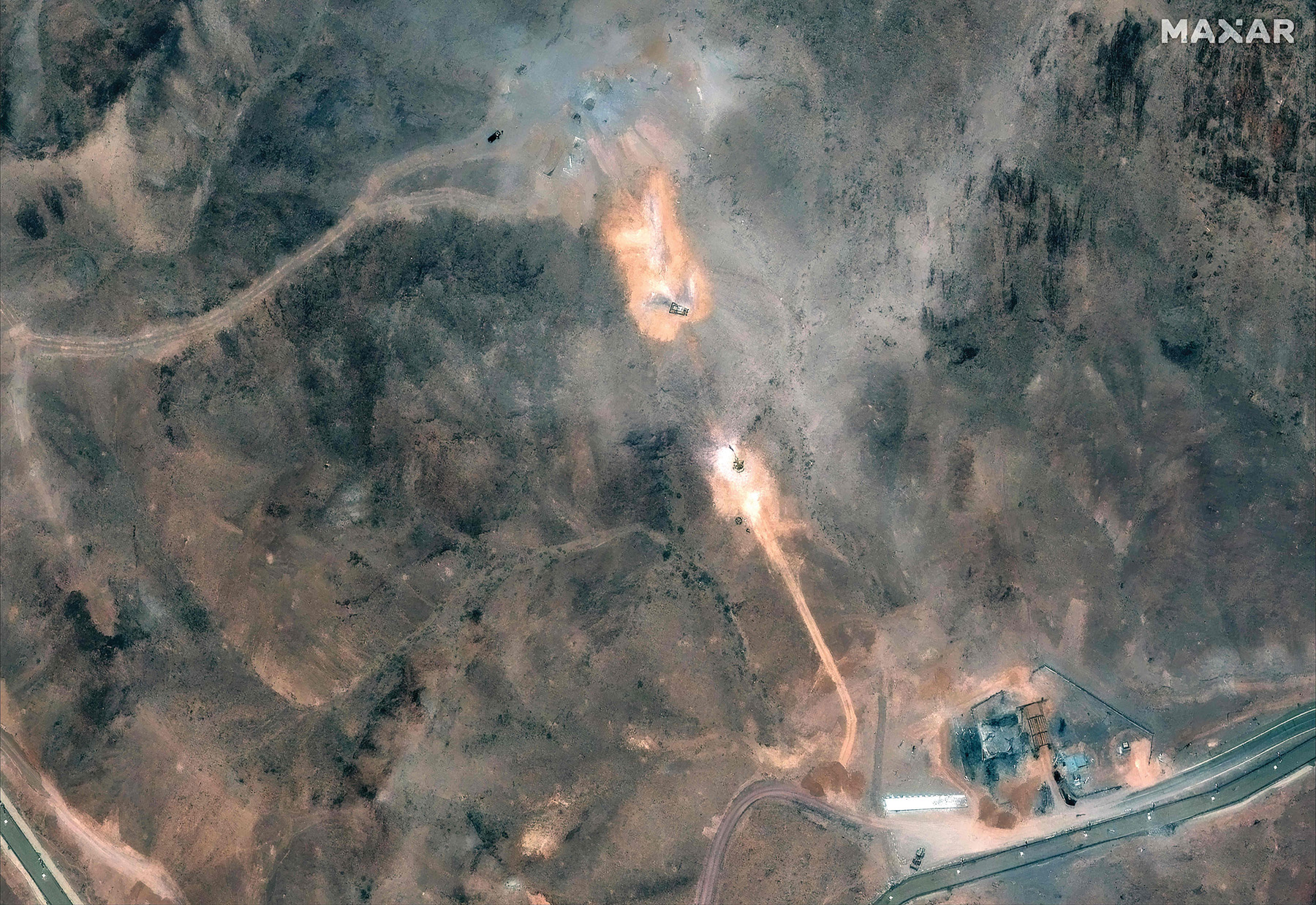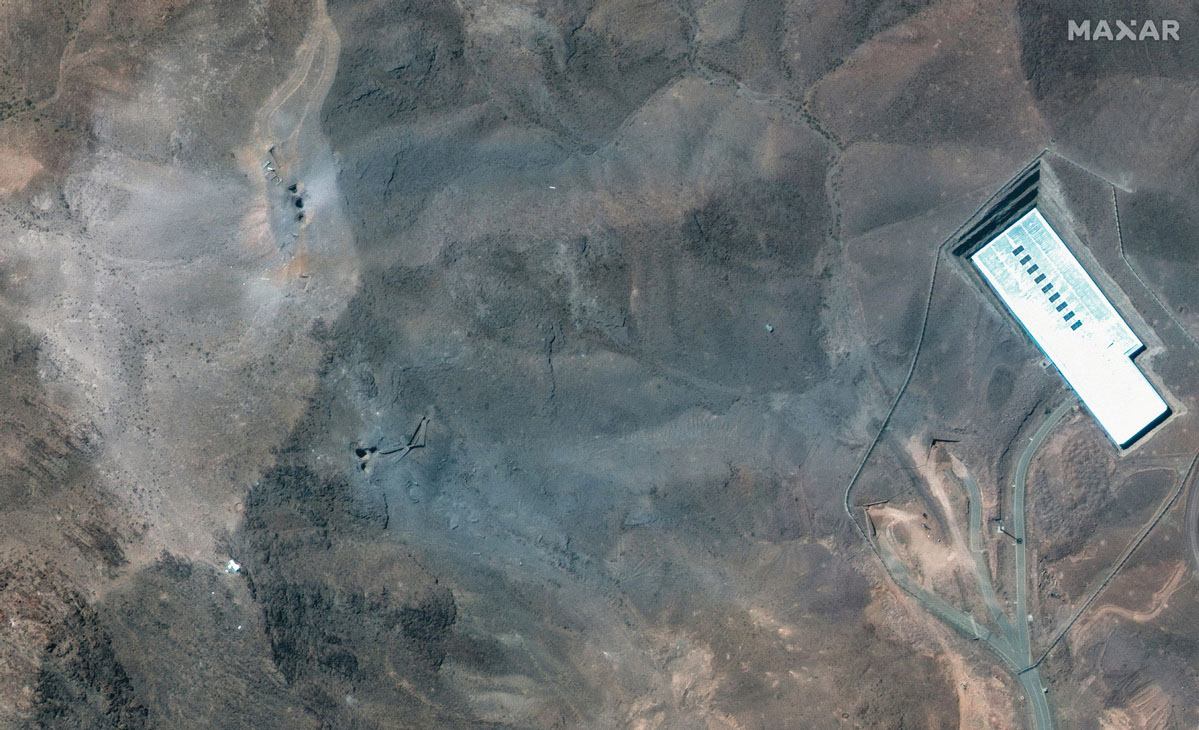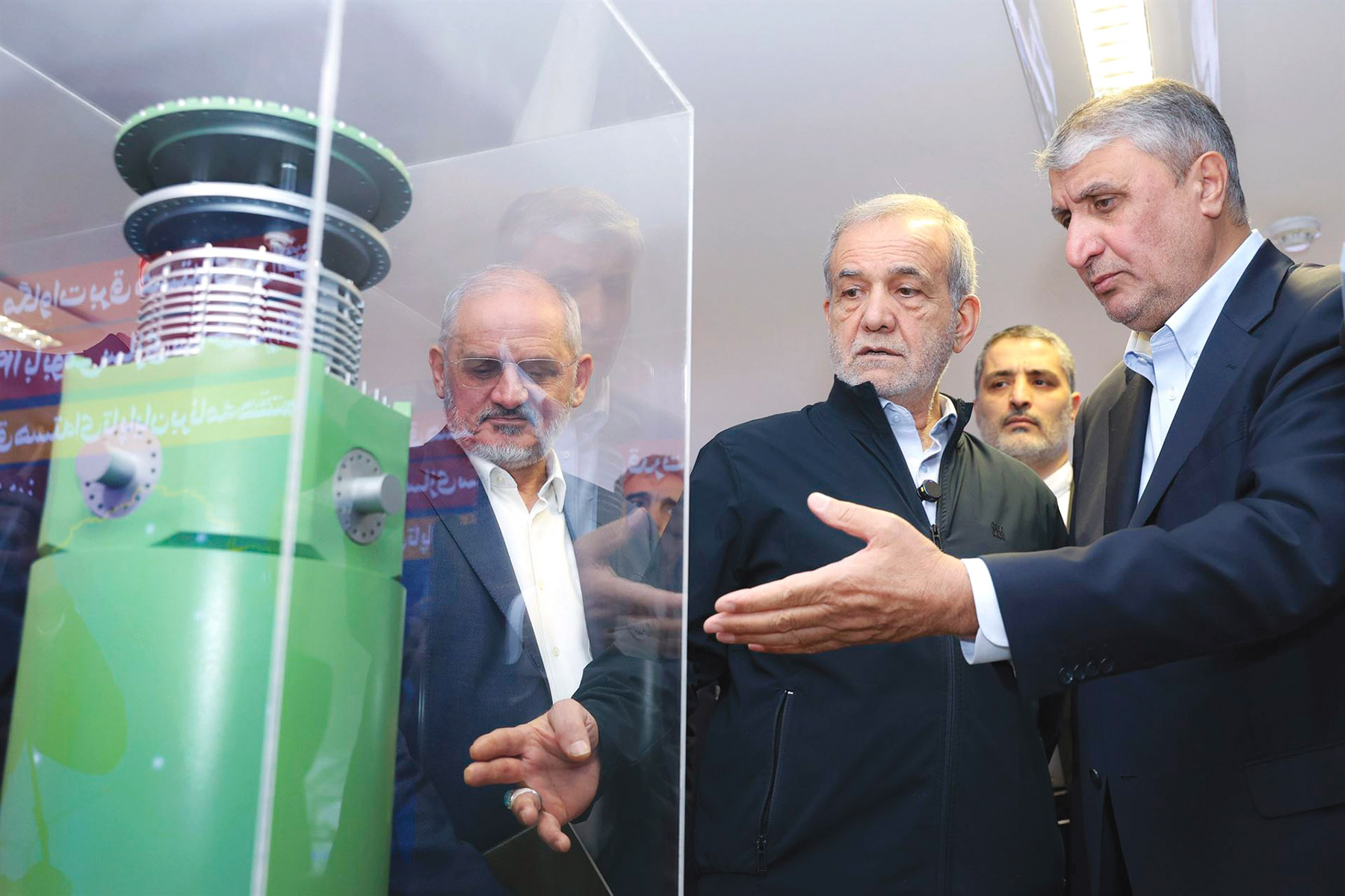Tehran takes issue with UN watchdog for failing to condemn Israeli, US strikes on nuclear facilities

In suspending its cooperation with the International Atomic Energy Agency, Tehran has criticized the UN watchdog for providing a justification for Israel’s aggressive airstrikes — which began a day after the IAEA adopted an Iran-related resolution — and failing to condemn the Israeli and US bombing of its atomic energy facilities.
On July 2, Iranian President Masoud Pezeshkian signed a law into effect, ordering all administrative organizations to implement a parliamentary directive suspending cooperation with the United Nations’ nuclear body.
“The government is mandated to immediately suspend all cooperation with the IAEA under the Treaty on the Non-Proliferation of Nuclear Weapons and its related Safeguards Agreement,” Iranian state television quoted the law as saying.
“This suspension will remain in effect until certain conditions are met, including the guaranteed security of nuclear facilities and scientists.”
The Iranian parliament passed a bill on June 25 to put ties with the IAEA on hold after a biased report earlier from IAEA Director General Rafael Grossi against Iran had led to a resolution by its Board of Governors, Iran’s Tasnim News Agency (TNA) reported.
The June 12 resolution subsequently encouraged Israel to launch a war of aggression on Iran, and it also prompted the US to bomb three of Iran’s main nuclear sites, TNA noted in its report.
Despite Iran’s interaction with the IAEA, Grossi has not acted impartially, Pezeshkian said.
He described Iran’s decision to suspend cooperation with the UN nuclear agency as a natural reaction to unjustifiable, unconstructive, and destructive behaviors.
Even if Iran resumes cooperation with the IAEA, there will be no guarantee that the country’s nuclear facilities will not be struck again, Pezeshkian told his French counterpart Emmanuel Macron during a telephone conversation on June 29.
Pezeshkian criticized the UN nuclear chief for making incorrect reports about Iran’s nuclear activities and refusing to condemn the US and Israeli military strikes on Iranian nuclear facilities.
The first step in rebuilding trust is the IAEA’s full commitment to the observance of its own rules and regulations, the president added.
The question is why Israel — which is not a member of the Treaty on the Non-Proliferation of Nuclear Weapons and has violated all international rules in the past years — should become a basis and reference for the IAEA’s reports, Pezeshkian told Macron.
“Such double standards have created numerous problems for regional and world security. The IAEA is expected to uphold the rights of countries, avoid double standards, and defend the rights of all member states,” the Iranian president added.

The Vienna-based IAEA has long monitored Iran’s nuclear program, but it did not immediately respond to a request for comment.
Intelligence assessments, including those by the US, an Israeli ally, and reports by the IAEA, showed no evidence of Tehran pursuing a nuclear weapon.
Iran has long insisted that its nuclear energy program is for peaceful purposes.
Iran’s decision drew immediate condemnation from Israeli Foreign Minister Gideon Saar, who urged European nations that were part of a landmark nuclear deal with Iran to implement its so-called snapback clause.
The clause would see the reimposition of all UN sanctions lifted following Tehran’s nuclear deal with world powers, based on one of the Western parties declaring Iran is not in compliance.
Iranian Foreign Minister Abbas Araqchi lamented that the UN Security Council and the IAEA have declined to condemn Israel’s war of aggression against Iran.
In a telephone conversation on June 30, Araqchi and his Egyptian counterpart Badr Abdelatty pointed to the widespread condemnation of the Israeli aggression against Iran by the international community, particularly Islamic countries and key regional organizations.
Araqchi noted that Iran’s peaceful nuclear program has turned into a matter of national pride and glory, stressing that the Iranian people will not easily back down from enrichment, according to the TNA website.
Dismissing US President Donald Trump’s threat that he could order strikes on Iran again should it resume enriching uranium beyond a certain level, Araqchi questioned the legality of such action and said Tehran was prepared for more attacks.
“We showed and proved during this 12-day imposed war that we have the ability to defend ourselves, and we will continue to do so should any aggression be launched against us,” the foreign minister said.
Araqchi admitted that the US bombing of Iran’s key Fordow nuclear site on June 22 “seriously and heavily damaged” the facility.
He dismissed a quick resumption of talks with the US after Trump said negotiations with Tehran could restart as early as this week, but did not rule out a return to the table.
“The doors of diplomacy will never slam shut,” said Araqchi.
“In order for us to decide to reengage, we will have to first ensure that America will not revert back to targeting us in a military attack during the negotiations,” Araqchi said. “And I think with all these considerations, we still need more time.”

White House Press Secretary Karoline Leavitt confirmed on June 26 that the US has no meetings scheduled with Iran. This came a day after President Trump said the two sides would talk and meet “next week”.
The US launched strikes on three Iranian nuclear facilities on June 22 using numerous B-2 stealth aircraft carrying “bunker-buster” bombs, where they hit Iranian nuclear facilities at Fordow, Natanz, and Isfahan.
The bombs are designed to penetrate deep into the ground or through heavy concrete before exploding to strike facilities or bunkers protected underground.
The US strikes followed days of missile attacks from Israel. However, it was believed that the Israeli military did not have missiles powerful enough to penetrate the three facilities.
In a news conference after the US attack, Trump said that “the strikes were a spectacular military success.” However, there have been disputes from US intelligence and analysts over the devastation inflicted.
At a press conference on July 1, Iranian administration spokesperson Fatemeh Mohajerani said Iran’s nuclear sites suffered serious damage in the military attacks by the Israeli regime and the US.
She stated that the Israeli attacks on Iran caused damage to 3,500 residential buildings, including 332 dwellings in Tehran.
The spokeswoman noted that 935 Iranians have been martyred in the 12-day war, including 140 women and children, while over 5,600 have been injured.
She also added that an Israeli attack on the Evin Prison of Tehran resulted in the martyrdom of 79 people on June 23.
Iranian Foreign Ministry’s spokesperson Esmaeil Baqaei, on June 30, told a press conference that the stances taken by Germany and France on Israeli war of aggression against Iran were unacceptable.
He said the comments made by the German officials have turned the European country into a “historic accomplice” in the Israeli atrocities. He also referred to the comments by Chancellor Friedrich Merz who said at the recent Group of Seven summit in Canada that Israel was doing the “dirty work” for everyone by striking Iran.
Meanwhile, IAEA chief Grossi indicated that Iran’s nuclear program could be up and running again in a matter of months.
“The capacities they have are there. They can have, you know, in a matter of months, I would say, a few cascades of centrifuges spinning and producing enriched uranium, or less than that,” Grossi said in an interview with CBS News taped on June 27.
“Frankly speaking, one cannot claim that everything has disappeared and there is nothing there,” he told ‘Face the Nation’ with Margaret Brennan, according to a transcript released on June 29 ahead of broadcast.
Grossi said Iran still has industrial and technological capacities.
“It is clear that there has been severe damage, but it’s not total damage,” Grossi said. “So, if they so wish, they will be able to start doing this again.”
When asked about allegations that Iran had moved stockpiles of enriched uranium — rumored to be as much as 400 kilograms — Grossi said the IAEA had not been granted access to Iran and is not sure whether the material was in the facilities when they were bombed or had been moved beforehand.
Grossi also told CBS News that the IAEA resisted pressure to say whether Iran had or was about to obtain nuclear weapons before the attack.
“We didn’t see a program that was aiming in that direction” of nuclear weapons, he said.
In a letter to Inter-Parliamentary Union President Tulia Ackson, Manoochehr Mottaki called on the global organization of national parliaments to condemn the Israeli regime’s war of aggression against Iran, in line with Article 2(4) of the UN Charter, and suspend Israeli membership.
Contact the writers at cuihaipei@chinadaily.com.cn


